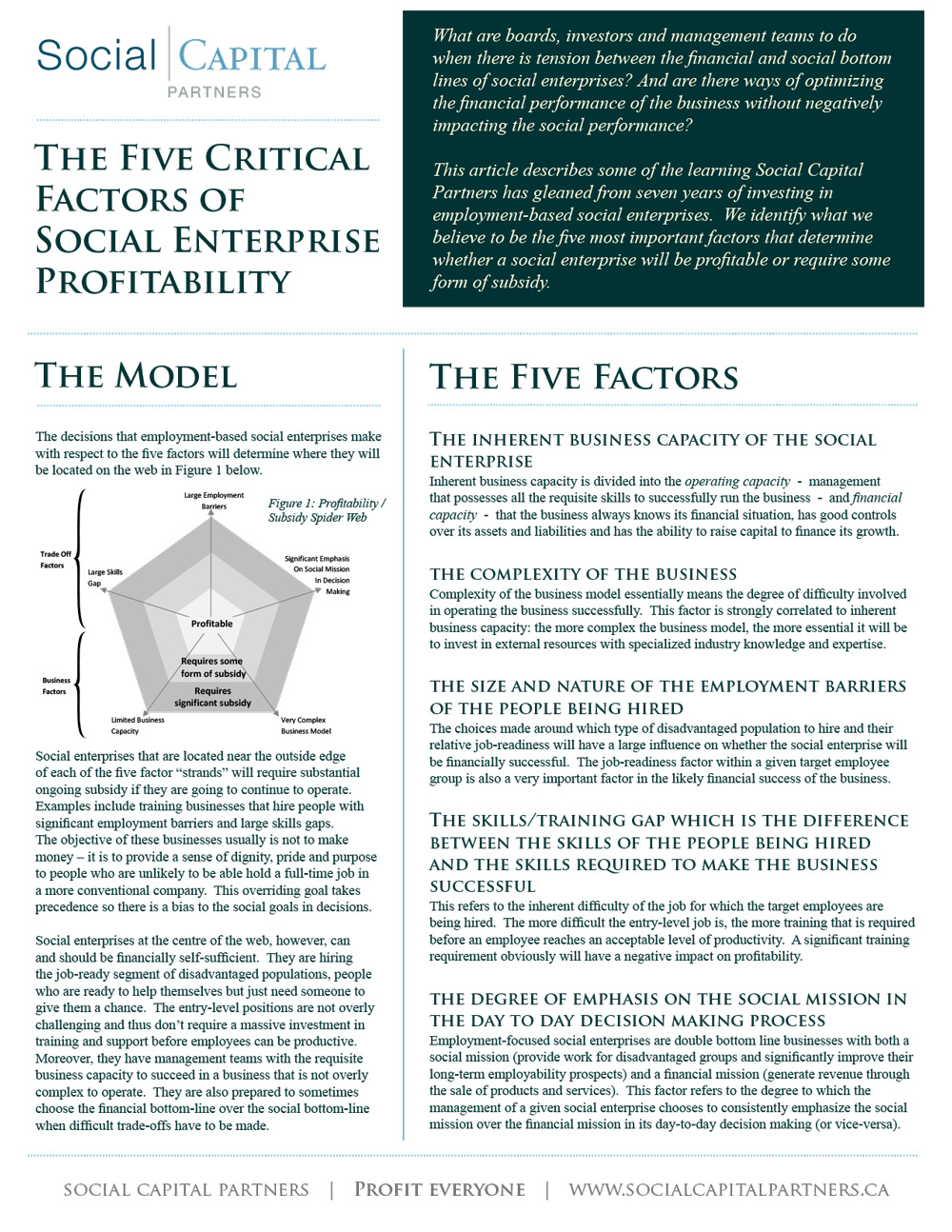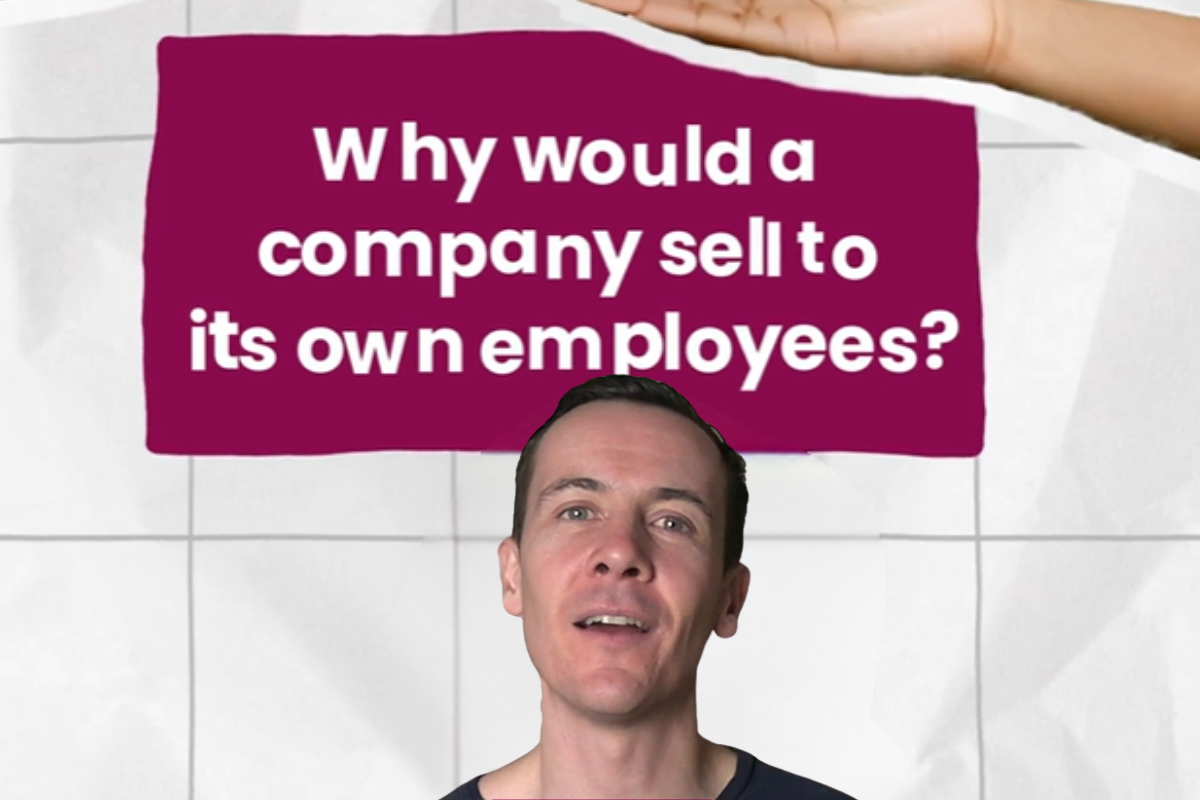What are boards, investors and management teams to do when there is tension between the financial and social bottom lines of social enterprises? Social Capital Partners shares learnings gleaned from seven years of investing in employment-based social enterprises. We identify the five most important factors that determine whether a social enterprise will be profitable or require some form of subsidy.
Simply put, our advice is to do everything possible to choose businesses that are not overly complex to operate and to build management teams that have the inherent business capacity to operate them effectively.
Share with a friend
Related reading
Watch the video: Why do Canadians work so hard and get so little?
Low productivity means lower wages and a lower standard of living. Canada does need to boost productivity—but we keep trying the wrong things. Watch SCP CEO Matthew Mendelsohn explain the productivity conversation Canada actually needs to have.
Market study submission: Competition in financing for Canada’s SMEs
Small- and medium-sized businesses (SMEs) face significant barriers to accessing capital and we believe that the lack of competition in the banking sector is one of several important contributing factors. We provided comment on the Competition Bureau's upcoming market study on SME financing because we believe that unlocking capital for SMEs and entrepreneurs will strengthen the Canadian economy, bolster our sovereignty and provide more Canadians with pathways to building wealth. We look forward to seeing how the evidence collected will help inform policymakers interested in tackling this issue.
Watch the video: Why would a company sell to its employees?
Canada is facing a $2-trillion business handoff. What if employees owned more of it? In this video, our Director of Policy Dan Skilleter explains why a company would sell to its own employees, how it happens and who stands to benefits. Spoiler alert: employee-owned companies are shown to be 8-12% more productive, share more wealth with their workers, keep businesses Canadian-owned and shore up the resilience of local communities and the broader economy.



